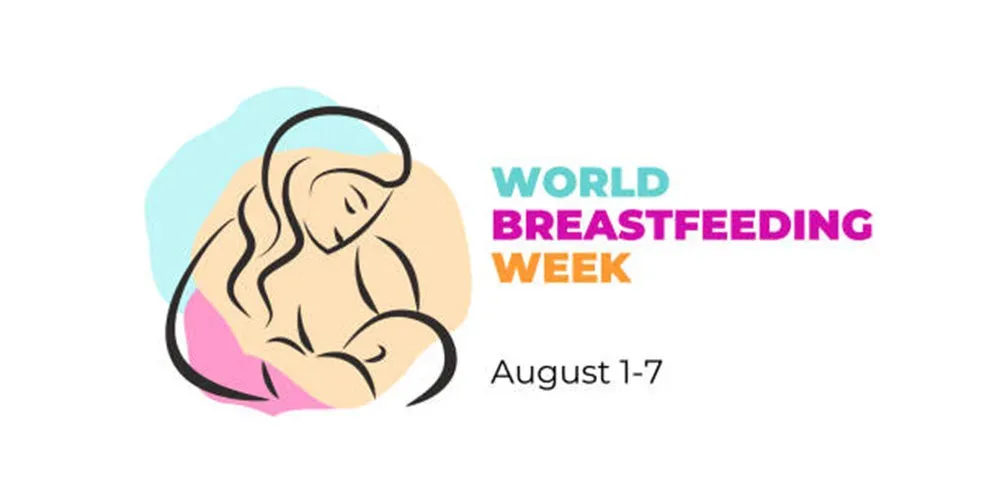World Breastfeeding Week: History, Theme, and Significance

Image courtesy: https://www.istockphoto.com/
World Breastfeeding Week raises awareness about breastfeeding. It is observed between 1-7 August. It commemorates the Innocenti Declaration by WHO and UNICEF in August 1990 to protect, promote and support breastfeeding.
WBW 2022 will focus on strengthening the capacity of actors that have to protect, promote, and support breastfeeding across various levels of society. Breastfeeding is key to sustainable development strategies post-pandemic, as it improves nutrition, ensures food security, and reduces inequalities between and within countries.
Breastfeeding within the first hour of birth, followed by exclusive breastfeeding for six months and continued breastfeeding for two years or more prevents all forms of child malnutrition, including wasting and obesity. Breastfeeding also acts as babies’ first vaccine, protecting them against many common childhood illnesses.
History of World Breastfeeding Week
World Breastfeeding Week (WBW), observed from August 1st to 7th annually, is a global campaign aimed at promoting and supporting breastfeeding. The initiative, which began in 1992, is celebrated in over 120 countries around the world. It was inaugurated by the World Alliance for Breastfeeding Action (WABA), in collaboration with the World Health Organization (WHO) and UNICEF, to emphasize the benefits of breastfeeding for both mothers and children.
The origins of WBW can be traced back to the Innocenti Declaration of August 1990, a document produced by WHO and UNICEF to protect, promote, and support breastfeeding. The declaration was a response to the declining rates of breastfeeding globally and set forth an agenda to foster a breastfeeding culture across nations.
In 1991, WABA was established on February 14th, with the mission to re-establish a global breastfeeding culture and provide support for breastfeeding everywhere. This led to the first celebration of WBW in 1992. The week-long event serves as a platform for raising awareness about the benefits of breastfeeding and advocating for maternal and infant health policies that support breastfeeding.
The theme of World Breastfeeding Week 2024
Each year, WBW is centered around a theme that addresses current challenges and promotes strategies to encourage breastfeeding practices. Past themes have included healthcare systems, women and work, community support, and the International Code of Marketing of Breastmilk Substitutes. The themes are designed to align with broader global goals, such as the United Nations’ Sustainable Development Goals (SDGs), to ensure that breastfeeding is recognized as a key component of sustainable development.
The theme for World Breastfeeding Week 2024 is “Closing the Gap: Breastfeeding Support for All.” This theme emphasizes the importance of providing support for breastfeeding across different communities and cultures, ensuring that all mothers have the resources and encouragement they need to breastfeed.
Significance of World Breastfeeding Week
The significance of World Breastfeeding Week also extends to its role in fulfilling the United Nations’ Sustainable Development Goals, particularly those related to maternal and infant health. By focusing on breastfeeding, governments, and health organizations can make significant strides in reducing child mortality and improving maternal health outcomes.
Quick Facts about Breastfeeding
Here are quick facts about breastfeeding and its impact on the mother and children.
- Breastfeeding burns between 500-600 calories a day. That means some moms might end up losing weight without any additional exercise.
- Breast milk is a living substance that contains live cells, including stem cells, which go on to become other body cell types like brain, heart, kidney, or bone tissue.
- Breast milk also contains antibodies and live white blood cells that help your baby fight against infection.
- Colostrum contains special proteins that coat your baby’s intestinal tract to protect it from harmful bacteria right from the start.
- Breastfeeding reduces mortality in newborns and infants and provides numerous lifelong health and brain development advantages to the child.
- The amount of breast milk you are able to produce has nothing to do with your breast size.
- Breast milk is not always white. It can be blue, green, yellow, pink, or orange depending on what you eat or drink. Don’t worry, it’s OK for baby.
- Breastfeeding lowers your baby’s risk of common childhood illnesses, including ear infections, respiratory infections, gastroenteritis, and Necrotizing Enterocolitis.
How to Observe World Breastfeeding Week
To participate, one can engage in various activities such as joining a breastfeeding support group, which can provide valuable information and assistance throughout the breastfeeding journey. Sharing personal experiences and the benefits of breastfeeding through social media or personal interactions can also contribute to the conversation, helping to educate and encourage others. Additionally, supporting mothers in their choice to breastfeed by creating a supportive environment, whether in public spaces or within the family, is crucial. This week is an opportunity to celebrate the natural and environmentally friendly aspects of breastfeeding, and to remind society of the collective role in supporting breastfeeding mothers for the health of the planet and future generations.
World Breastfeeding Week Observation Dates
World Breastfeeding Week (WBW), observed from August 1st to 7th annually, is a global campaign promoting and supporting breastfeeding.
| Year | Date | Day |
| 2019 | 1-Aug-19 | Thursday |
| 2020 | 1-Aug-20 | Saturday |
| 2021 | 1-Aug-21 | Sunday |
| 2022 | 1-Aug-22 | Monday |
| 2023 | 1-Aug-23 | Tuesday |
| 2024 | 1-Aug-24 | Thursday |
| 2025 | 1-Aug-25 | Friday |
| 2026 | 1-Aug-26 | Saturday |
| 2027 | 1-Aug-27 | Sunday |
| 2028 | 1-Aug-28 | Tuesday |
| 2029 | 1-Aug-29 | Wednesday |
Read Also: Naming a cow enhances milk yield – Study finds
Observer Voice is the one stop site for National, International news, Sports, Editor’s Choice, Art/culture contents, Quotes and much more. We also cover historical contents. Historical contents includes World History, Indian History, and what happened today. The website also covers Entertainment across the India and World.

